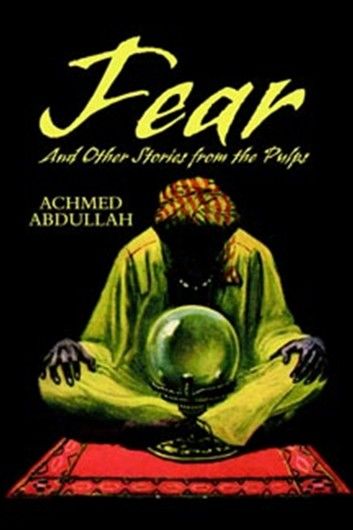| FindBook |
有 1 項符合
Fear and Other Stories的圖書 |
 |
Fear and Other Stories 作者:Achmed Abdullah 出版社:WDS Publishing 出版日期:2013-06-04 語言:英文 |
| 圖書館借閱 |
| 國家圖書館 | 全國圖書書目資訊網 | 國立公共資訊圖書館 | 電子書服務平台 | MetaCat 跨館整合查詢 |
| 臺北市立圖書館 | 新北市立圖書館 | 基隆市公共圖書館 | 桃園市立圖書館 | 新竹縣公共圖書館 |
| 苗栗縣立圖書館 | 臺中市立圖書館 | 彰化縣公共圖書館 | 南投縣文化局 | 雲林縣公共圖書館 |
| 嘉義縣圖書館 | 臺南市立圖書館 | 高雄市立圖書館 | 屏東縣公共圖書館 | 宜蘭縣公共圖書館 |
| 花蓮縣文化局 | 臺東縣文化處 |
|
|
The fact that the man whom he feared had died ten years earlier did not in the least lessen Stuart McGregor's obsession of horror, of a certain grim expectancy, every time he recalled that final scene, just before Farragut Hutchison disappeared in the African jungle that stood, spe
ctrally motionless as if forged out of some blackish-green metal, in the haggard moonlight.
As he reconstructed it, the whole scene seemed unreal, almost oppressively, ludicrously theatrical. The pall of sodden, stygian darkness all around; the night sounds of soft-winged, obscene things flapping lazily overhead or brushing against the furry trees that held the woolly heat of the tropical day like boiler pipes in a factory; the slimy, swishy things that glided and crawled and wiggled underfoot; the vibrant growl of a hunting lioness that began in a deep basso and peaked to a shrill, high-pitched, ridiculously inadequate treble; a spotted hyena's vicious, bluffing bark; the chirp and whistle of innumerable monkeys; a warthog breaking through the undergrowth with a clumsy, clownish crash--and somewhere, very far away, the staccato thumping of a signal drum, and more faintly yet the answer from the next in line.
He had seen many such drums, made from fire-hollowed palm trees and covered with tightly stretched skin--often the skin of a human enemy.
|











